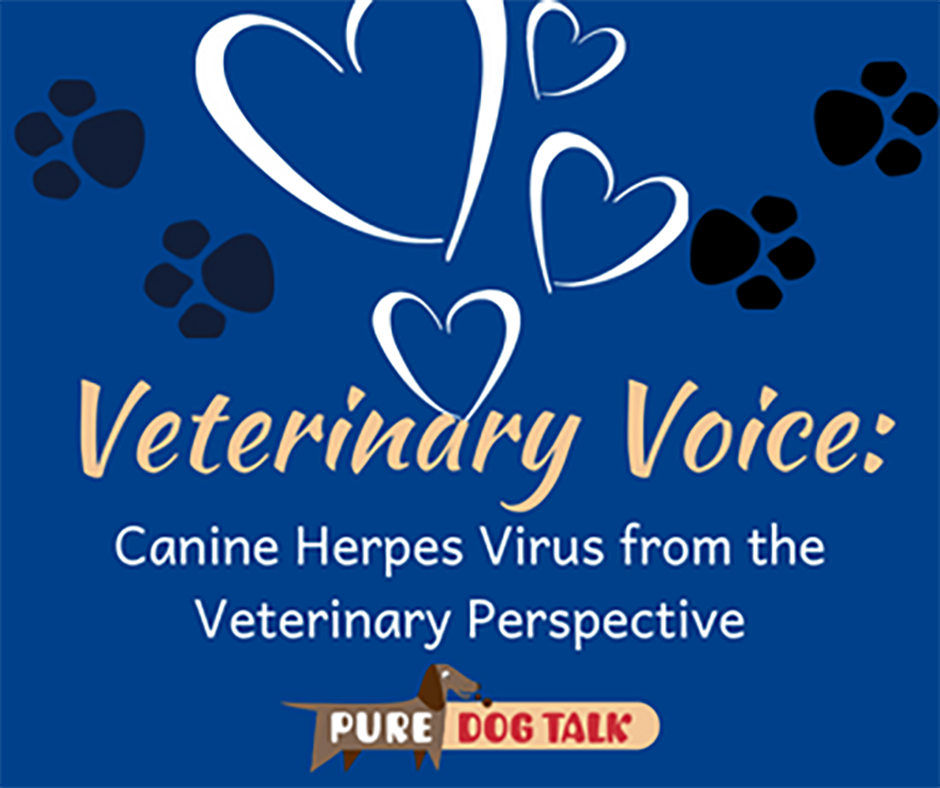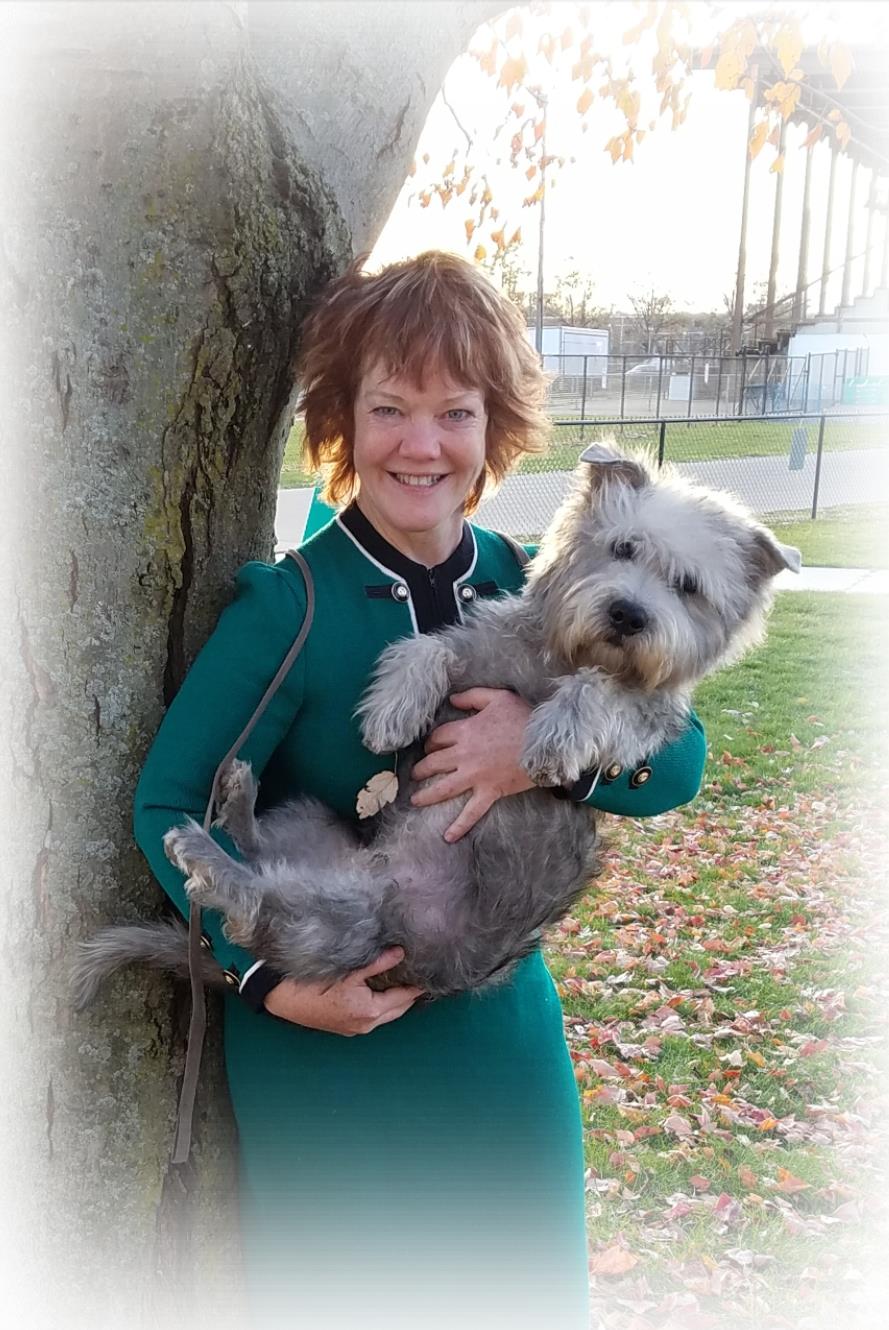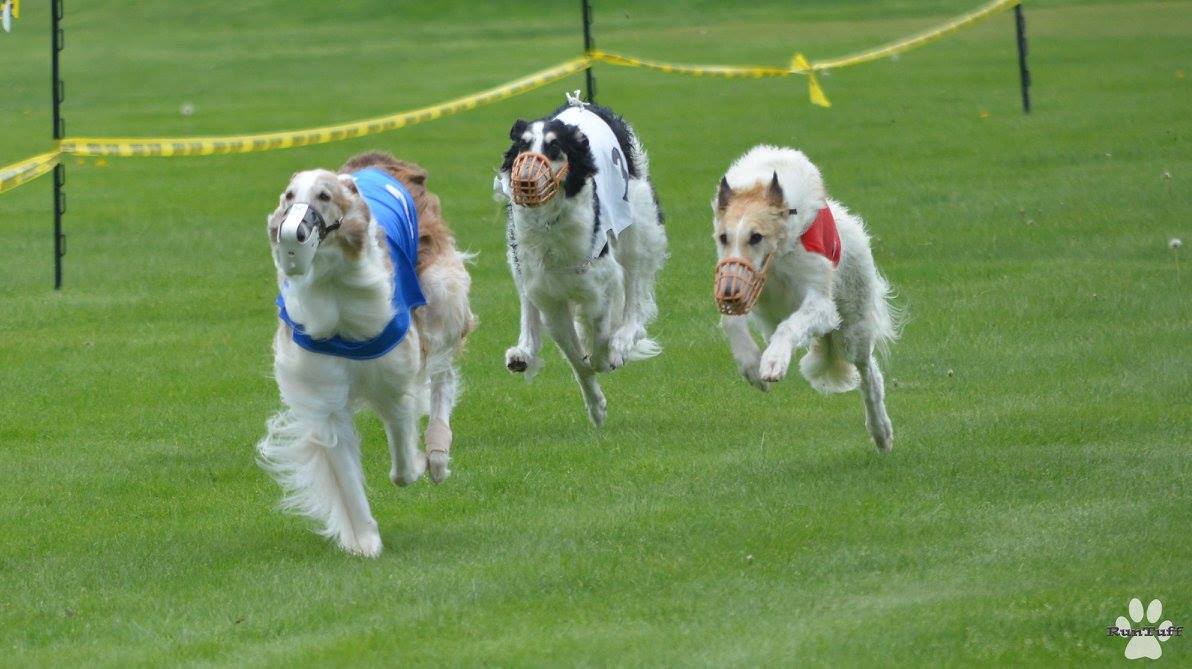548 – Canine Herpes Virus from the Veterinary Perspective

Canine Herpes Virus from the Veterinary Perspective

BRUCE W. CHRISTENSEN, DVM, MS, DACT
Dr. Bruce Christensen, DVM from Kokopelli Assisted Reproductive Services, joins host Laura Reeves to talk about treating pregnant dogs and their puppies for Canine Herpes Virus.
Last week we heard from Alaskan Malamute breeder Wendy Korr on her experience with this potentially devastating disease in her litter. Today we are joined by the veterinarian who led the treatment of dam and puppies with a refresher course on CHV.
“Herpes virus is not something that we typically screen for on a routine basis with our breeding bitches,” Christensen said. “It could be argued that maybe we should, but I guess in our conversation today we can probably talk about why that is or isn’t so.
“The bottom line is that it’s a pretty common virus. And so most bitches, and stud dogs, have been exposed to it and have it essentially, although it’s not actively causing disease in most of them. However, the dangerous thing is if a bitch hasn’t been exposed to herpes virus and then she’s initially exposed to it while she’s pregnant, especially in that last half of gestation.
“That would be the most dangerous time because the first time that an animal is exposed to herpes virus, they have the strongest immune response and the least prepared immune response, so the virus has more of a head start. Since the body hasn’t seen it before, there aren’t any lingering antibodies to recognize the virus and mount a quicker subsequent response. So the initial response is a little slower at coming and gives the virus more time to do damage. And that damage during the second-half of pregnancy will involve the fetuses and potentially much more likely infect them.
“If a bitch has been exposed before, then she’ll have antibodies and she’s already got the virus in her, just in the latent state. And if it reproduces or comes back out, her immune system should be adequate enough to protect the puppies that are in utero. So if you find that she’s naive, in other words that she has not been exposed to herpes virus, then you need to be hyper vigilant about keeping her away from other dogs throughout the rest of her pregnancy because you don’t want her to be exposed for the first time during her pregnancy.
“So that dog needs to be on real lockdown and isolation from any outside dogs. If you have dogs in your household that will have contact with her ’cause it just be too difficult to keep them apart, they need to be tested. And if they’re negative, then they could continue to have contact with her and no other dogs. If they’re positive, then you probably wanna temporarily rehome them to keep them away from her during that pregnancy so that they don’t potentially spread it to her while she’s pregnant.
“Most species have their own herpes viruses and they’re not communicable between species. We all know coronavirus jumps between species because of what the world’s gone through in the last couple years, right? Herpes virus doesn’t do that. It pretty much stays true to the species it’s evolved with.
“But once you get a herpes infection, the viruses pretty much behave the same. They go into your cells and they stay in your cells for your lifetime. Now they’re usually quiet and just sit there, not replicating, just quiet inside the cells. Usually, it’s in times of stress that they are triggered. Everybody listening to this podcast is going to be familiar with herpes virus in people, ‘Damn it, I got a cold sore.’ So that’s because the virus. Once you’ve got it, it’s in your body forever and during times of stress it’ll come out and cause those annoying problems. In the dog, it’s the same.
“Once a dog becomes exposed to herpes virus, it’s in the dog for life, but most of the time it’s just quiet inside the cells. During times of stress, it can come back out. And interestingly, in dogs, the clinical signs usually are not necessarily like cold sores, but not too far off. They give blister-like lesions on mucosal surfaces, so it’s similar to a cold sore, but you’ll see these little blisters on their gums or if they’re male dog on their prepuce, if they’re female on their vaginal mucosa, and you’ll see that and that’s it. They don’t cause anything except maybe some minor discomfort. But they are at that point shedding, and they can pass it quite easily from one dog to another.
“The virus is really weak outside the body, so it’s not like it’s gonna live very long in a kennel or in a backyard. Any kind of cleaning product will kill it. Sunlight is gonna kill it. It doesn’t live long like other viruses can in the environment. But passing from dog to dog, you know, they meet each other, they lick each other, they smell each other. They can pass it quite easily that way. And once you’ve got it, you got it.
“One of the major things that keeps herpes virus at bay and just causing these little blister-like lesions and not more is that it doesn’t replicate very well at normal body temperature. So for a dog that’s 99 to 101-ish degrees Fahrenheit and it doesn’t replicate well at that temperature. But if it gets below 97, then now it can replicate pretty fast and furious. In those puppies that are colder than that, if their environment doesn’t keep them warm up in the 99 plus range, then it will do more than blisters. It will attack their kidneys, it will attack their liver, it will attack their lungs. It’ll attack all the major organs of their body and cause very rapid death within a couple days.
“Whether they’re born by C-section or natural, one of the most important things you can do for the puppies is to keep them warm. Remember that their little internal thermostats don’t start fully functioning until they’re somewhere between two and three weeks of age. So up until that point they’re really like little lizards, crawling around and relying on their environment to keep them warm. So, the mother does a good job at that, but she’s not always there so you have to keep the nesting area warm.”
Our Valued Corporate Sponsors:
Our Esteemed Advertisers:
Our In-Kind Supporters:
KNOWLEDGE IS POWER — FRANCIS BACON
When you become a patron of Pure Dog Talk you’ll tap into an exclusive community of experts to help you and your dog be blue-ribbon best at whatever you do with your purebred dog! Your support helps keep the MP3's rolling at Pure Dog Talk!
As a supporter, you’ll immediately gain access to the weekly Pure Pep Talk SMS, Pure Pep Talk private Facebook group, and priority emails. Patrons can choose to level up to the After Dark Zoom and a Patrons Digital Badge for their website— even a private counseling session with Laura on any topic.

DON'T MISS AN EPISODE!!












